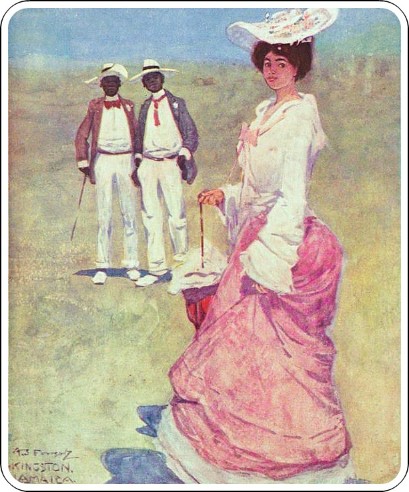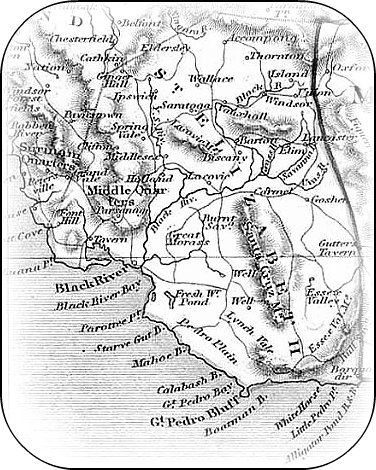introduction|getting started |personalities |parishes|great horses|read this
introduction
'Foremost amongst English sports must be placed horse-racing, and this has existed in Jamaica and some of the other islands ever since their British occupation . . .' Jamaica in 1928
‘Right
in this parish, in fact
right down in the lowlands here some glorious races were run and some
wonderful horses bred over one
hundred years ago. I heard
it from my old people, who, I must tell you, always had the love of
horses in their heart.
When
they were slaves they had masters who loved horses, and were better and
kinder
[to them] because of that.
As freed-folk they loved horses, all the more since they were free to
own them. We have never,
anyone of us, from a
hundred years back been without one fine horse at least.’

‘Tell
me about
the racing that was done
here’ I urged. He shuffled himself to a completely comfortable position
in the old cane chair.
The light from the lantern
hanging from the centre of the room shone on his gray hair so that his
head seemed to be covered
with threads of silver. His
dark brown face brightened to the shade of leather-brown and his little
dark eyes danced and sparkled
like a pair of diamonds.
This was something dear to the old fellow’s heart. He would enjoy the
telling, I could see;
as for me, I had no fear
there was something interesting coming.
‘Now my grand-mother,’ he began, 'owned a couple of horses that ran and won several match races in the parish as well as in Westmoreland, Hanover and St James. She was a horse-woman if ever one was born in Jamaica. She trained her horses herself and following them wherever they were racing and when they won or placed - they never went lower than that - she came home and made a dinner which we and her horse-breeding neighbours had in the kitchen. It was at one of these feasts she told us what I am going to tell you now.

Such
slave owners as had no virtue in them hired the freed
people at a price that
mocked at freedom, but there were a number of honest planters through
whose munificence and enterprise
the lot of ex-slaves was
made much easier.There were racing men. At that time there was a large
and beautiful race track on
these low lands. When they
held a meeting the place was quite a spectacle, all the beautiful ladies
came with their parasols
and their pretty long
dresses, and the thing was

at the races in 1906







